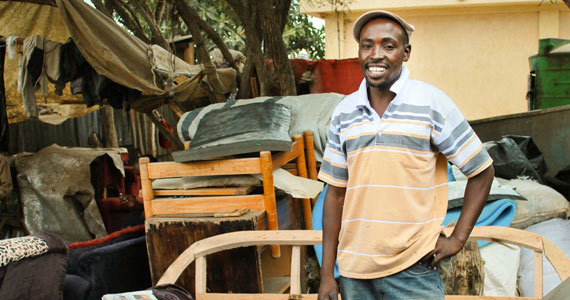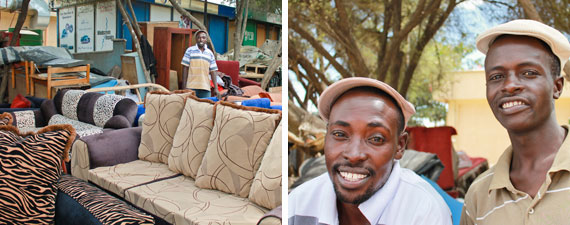“I’m sorry, Patrick, but I can’t employ you any longer.”
To a young carpenter’s apprentice living with his wife and three children in a dilapidated shack in one of Nairobi’s congested slums, those words fell like a boulder on his heart. Patrick’s boss explained that he had no choice. Thieves had broken into his business, stealing all his tools and lumber, as well as his entire inventory of windows, doors and furniture. Unwittingly, they also stole Patrick’s job, which was providing just barely enough to feed his family and pay the rent on their little shack.
Thankfully, the thieves couldn’t steal Patrick’s friendships, and the caring members of his slum-church stepped in to offer support. In their own poverty, however, they could only supply a small portion of the family’s physical needs. Although Patrick found occasional day work, it was not enough. Many days the Ndiranju family didn’t eat.
One day Patrick’s pastor, knowing that Patrick was hard-working and skilled with his hands, told him about a Heaven’s Family micro-banker whom he had met, and he arranged a meeting. Patrick was told that if he could draw up a good business plan, he might qualify for a business startup loan. Patrick got to work on it right away, outlining a plan to start his own furniture store.
Several days later Patrick’s plan was approved, and he received a $250 Heaven’s Family “Opportunity Loan.” He used the money to purchase a few hand tools, some lumber, and to rent an open space along a busy thoroughfare. Patrick began by making upholstered chairs and sofas and displaying them—all out in the open without a roof’s protection, a typical sight in Nairobi’s poorer sections. Patrick made an arrangement with a neighboring shopkeeper to lock everything away securely overnight.
Before long Patrick had customers. For ideas about inventory, he looked at furniture advertisements that he found in discarded newspapers. He saved those ads in a scrapbook that eventually became his own furniture catalog. This proved to be very effective at securing orders, and he soon had more business than he could handle by himself. Patrick hired an apprentice, becoming an employer.
Patrick is now prospering and faithfully repaying his loan. He and his family still live in the slum, but they have enough to eat and are able to pay their children’s school fees. They also contribute to their church and help other poor believers who fall on hard times. Patrick considers himself a rich man, having learned the secret of contentment that so many of us who are materially wealthy find so elusive. “But if we have food and clothing, we will be content with that” (1 Timothy 6:8).






